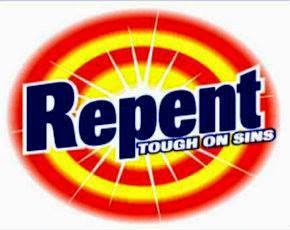2 Timothy 3:1, Last days…perilous times.
Standing Like a Rock in the End Times!

In these increasingly dark and evil days in which we are now living where evil is made to appear to be good, down is up and black is white, and where YHVH’s people are being increasingly marginalized, persecuted and even killed, what can and should we be doing in the face of evil’s onslaught against us? The following list provides the answers from the Scriptures.
Watch and pray (Matt 26:41; Mark 13:33; 14:38; Luke 21:36).
- Pray that you might be counted worthy to escape YHVH’s judgments that will be coming on the earth because of wickedness (Luke 21:36).
- Endure to the end (Matt 24:13; Mark 13:13).
- Keep your eyes on Yeshua the Lamb and follow him wherever he goes (Rev 14:4).
- Occupy until Yeshua comes (Luke 19:13). Be busy doing what Yeshua has called you to do to help advance his kingdom on earth.
- Engage in intercessory prayer, though at this time, it may not do much good, since biblical prophecy has to be fulfilled as end time events occur. This means that things will be getting worse and worse until Yeshua returns and destroys Babylon the Great New World Order. We can still intercede for individuals however.
- Be an overcomer in every way possible. Be not overcome by evil, but overcome evil with good (Rom 12:21). Those who overcome spiritual evil will experience great rewards (Rev 2:7, 11, 17, 26; 3:5, 12, 21)
- Be prepared to engage in civil disobedience as a last resort, if necessary. If civil laws violate YHVH’s laws, the Bible tells us to obey YHVH’s laws over men’s laws (Acts 4:19; 5:29; Ps 94:16).
- Be prepared to help persecuted brothers and sisters in any way possible. You might be next the next one to be persecuted and may find yourself needing help from others, so pay it forward! If you sow, you will reap.
- Continue to be salt and light to those around you in every way possible (Matt 5:13–16).
- Don’t expect things on earth to get better. Yeshua never said it would get better, but only darker before his return. He’s coming at the midnight hour when evil will be the most pervasive and rampant on the earth.
- Expect intense persecution of Bible believers (2 Tim 3:12; Matt 5:10–12; 10:22–25; 23:34; Mark 10:30; John 15:19–21; 16:2, 33; 17:14; 1 Thess 3:3–4; 1 Pet 4:12–16; Rev 7:14). Yeshua in the book of Revelation prophesies that this will occur in the end times.
- Be wise as serpents (Matt 10:16). Find ingenious ways to circumvent Caesar’s evil and unbiblical mandates without getting caught, while at the same time being obedient to YHVH’s higher laws.
- Love not your lives unto death (Rev 12:11). Be willing to lose some or all of yourself for Yeshua including your material possessions. Greater rewards await you for your faithful obedience to Yeshua (Matt 10:39; 16:25).
- Be inspired by the great faith of the biblical and Christian heros who have gone before us (Heb 11).
- Come out of the end times Babylon the Great world system more completely (Rev 18:4) starting with the spiritual aspects of this evil and ungodly worldwide system. Eventually, this may mean leaving the cities and going into communal situations into the wilderness with other like-minded believers. Some of the Roman Catholic monasteries were started by those fleeing the corruption of Rome.
- The more evil intensifies against you, love the light of YHVH’s truth, love Yeshua more and run to him and hold on to him—the Rock of your salvation—more tightly.
- Love your enemies, do good to those who despitefully use you and pray for them (Matt 5:44).
- And finally…
Watch, stand fast in the faith, be brave, be strong. Let all that you do be done with love (1 Cor 16:13). Let the following scriptures admonish you:
“Put on the whole armor of Elohim, that you may be able to stand against the wiles of the devil. For we do not wrestle against flesh and blood, but against principalities, against powers, against the rulers of the darkness of this age, against spiritual hosts of wickedness in the heavenly places. Therefore take up the whole armor of Elohim, that you may be able to withstand in the evil day, and having done all, to stand. Stand therefore, having girded your waist with truth, having put on the breastplate of righteousness, and having shod your feet with the preparation of the gospel of peace; above all, taking the shield of faith with which you will be able to quench all the fiery darts of the wicked one. And take the helmet of salvation, and the sword of the Spirit, which is the word of Elohim; praying always with all prayer and supplication in the Spirit, being watchful to this end with all perseverance and supplication for all the saints….” (Eph 6:11–18)
“For though we walk in the flesh, we do not war according to the flesh. For the weapons of our warfare are not carnal but mighty in Elohim for pulling down strongholds, casting down arguments and every high thing that exalts itself against the knowledge of Elohim, bringing every thought into captivity to the obedience of Messiah, and being ready to punish all disobedience when your obedience is fulfilled.” (2 Cor 10:3–6)









